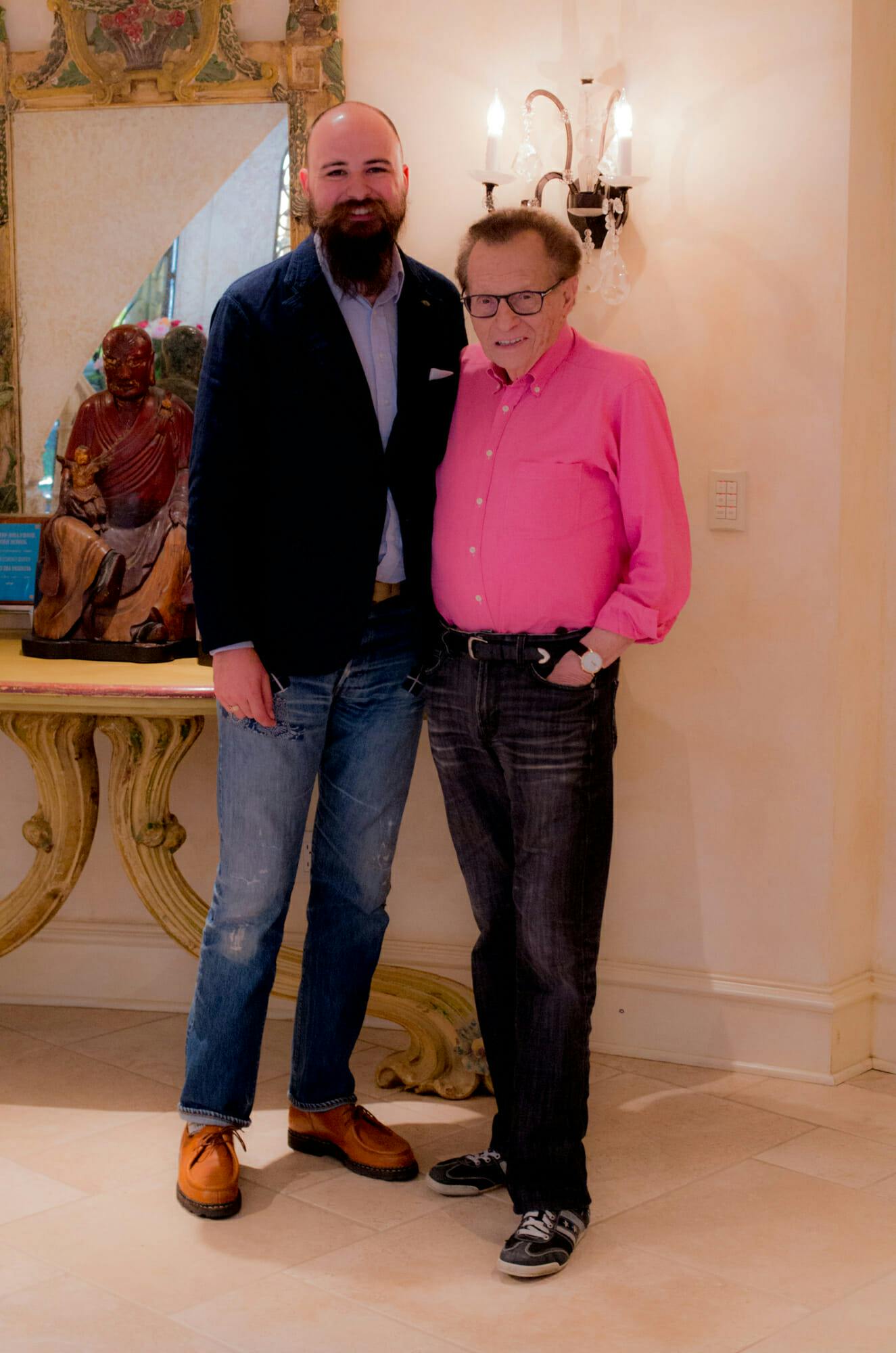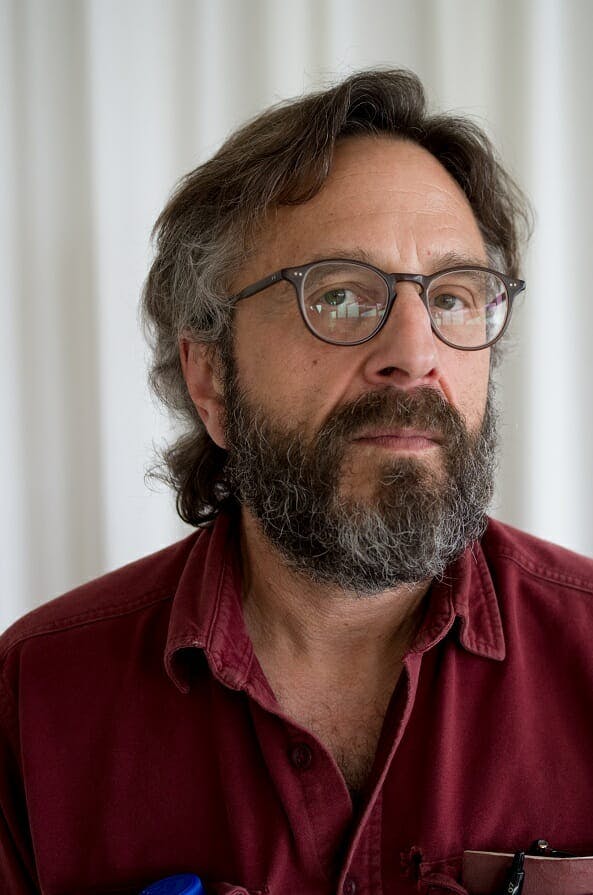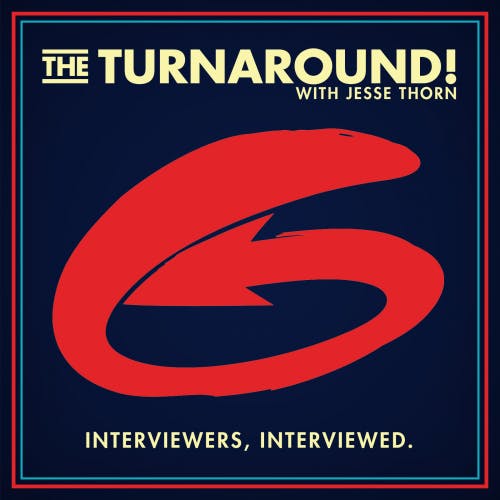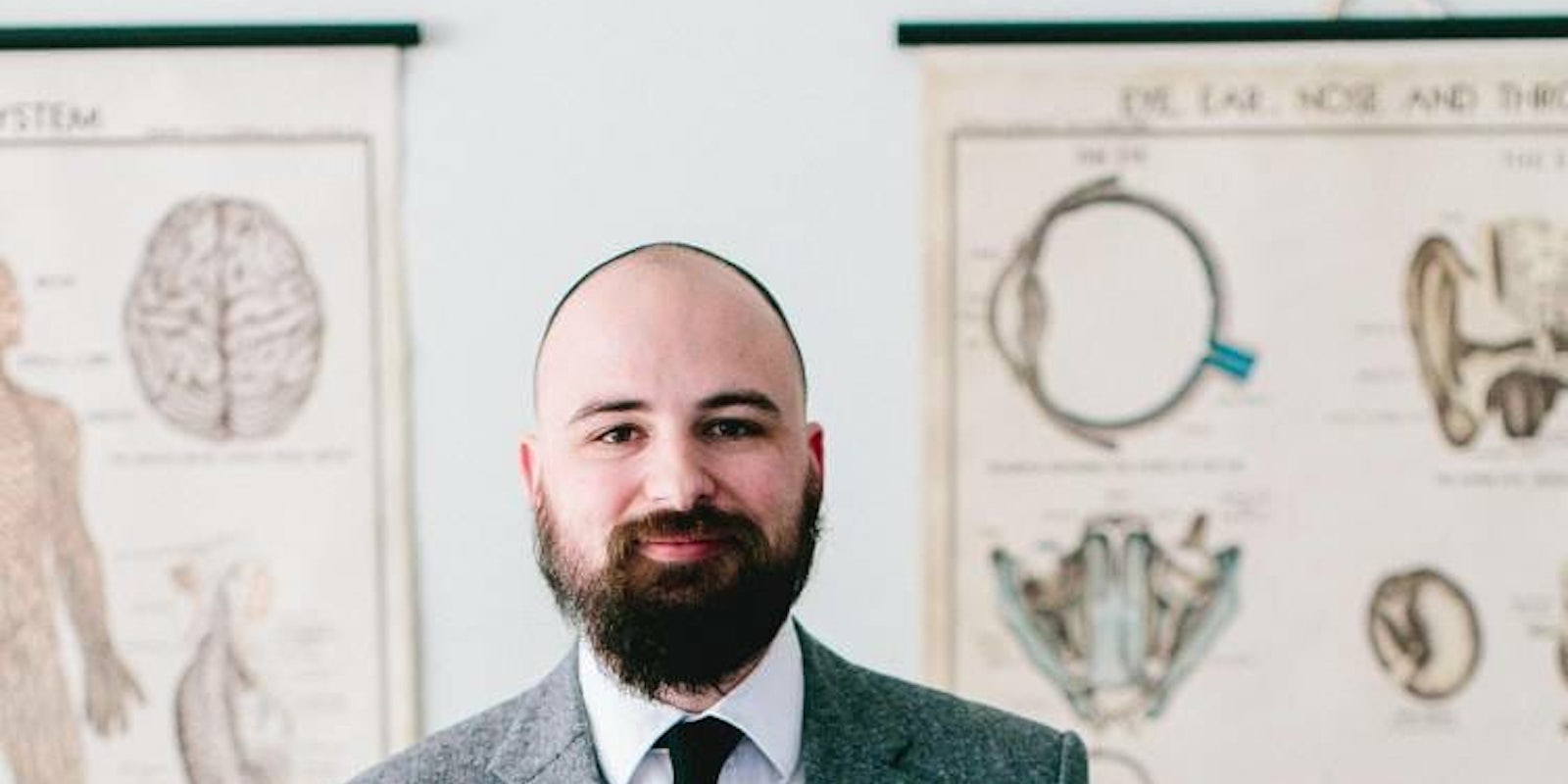I’ve devoted hundreds of hours to interviews, but I don’t know the first thing about how to conduct one. Nothing was ever formally taught to me, save a few scattered undergrad classes.
The Turnaround, brought to the podcast universe by Jesse Thorn in partnership with Maximum Fun and the Columbia Journalism Review, is aiming to help anyone who’s tinkered with a podcast for just that reason.
Thorn hosts and produces the NPR show Bullseye, and is the owner and founder of the hugely popular podcast network Maximum Fun where he hosts Judge John Hodgman and Jordan, Jesse, Go! He’s also had a TV show on IFC and is the publisher of a fashion blog called Put It On. It’s a huge body of work that’s hard to keep up with, and more than qualifies him to speak as an authority on interviewing, but his humble and sometimes self-deprecating nature actually makes him an ideal showrunner for The Turnaround: He’s the perfect stand-in for the student listener.
“Think of the 10,000 books there are on how to be a reporter, and how none of them are about how to be a feature interviewer,” Thorn tells the Daily Dot. “My idea was that I would talk to these people who have different jobs around interviewing, who I like and admire, and just ask them why they do what they do… Both so that I would get some experience and insight from them, and also so that I could create a resource for people that are in the position I was in when I was 19. I wanted someone who was in that position now—and it’s a position that a lot more people are in because of podcasting and blogging—to have something useful.”
In 2017 saying a lot of people have a podcast is an understatement. It’s objectively a smart, fun, cheap, and accessible way to put out content, which can lead to a living revenue stream faster than creating a print website or blog.
However, this accessibility is often mistaken as an excuse to put out a poor or hasty product, and there’s no greater offender of this than when interviews turn into stale exchanges with boring information. Interviewing is an art after all, and it’s difficult to do well.

There are a few exceptional books about interviewing from masters of the field, and over the years there have been amazing interviews about the art of interviewing. Several excellent nonprofits like Transom and Current exist to advance the art as well. But these are well-hidden gems, and Thorn’s set on bringing his expertise to the masses.
When The Turnaround launched in June, you could push play and get interview tips from the best interviewers of our generation. The show has released interviews with Ira Glass, Susan Orlean, Marc Maron, Audie Cornish, Larry King, Brooke Gladstone, Errol Morris, Jerry Springer, Anna Sale, and Combat Jack (Reggie Ossé). Future guests include Ray Suarez, Terry Gross, and more.
As for the actual advice on interviewing, it struck me that everyone had some combination of broad and distinct advice based on their specific career trajectories. Ask difficult questions where the response may not be comfortable. Come prepared, but don’t overthink it. Don’t be afraid to seem dumb. Interviewing is about being curious. Make sure to listen.
If you can’t tell from the ridiculous guest list or the simple and straightforward advice, The Turnaround is truly a master’s class in interviewing. In a nod to the evergreen nature of the show, all interviews were completed ahead of the first episode’s release.
The oddest piece of this equation, and one that makes sense after speaking with Thorn, is that the host claims no formal training in the art of interviews, and basically admits that he learned by throwing spaghetti against a wall and determining if that spaghetti stuck or not. The show was developed partly because of a perceived lack of existing material on the subject—the fact that there are no Strunk and White books for interviewing.
“I’ve never really had a job in journalism,” Thorn said. “In fact, even doing my show, which I’ve been doing since I was 19, I’ve never had an editor or a producer who was above me. It’s hard for me to know if I’m doing a good job.”

The production partnership with the Columbia Journalism Review seemed like a no-brainer, as their mutual goal is to foster strong journalism. The CJR is publishing a mix of partially transcribed and extensively edited interview highlights on its website for each episode, and Maximum Fun will publish the audio, basically in its raw form.
This show is partly a way for Thorn to validate his own career through the exploration of all his mentors’ careers. It makes the show a rewarding and unique listen because our host is so accessible. Using the very Thorn-like ability to explain a complicated issue without being condescending, this show captures all of our own interview neuroses in a podcast. It’s already an exceptional resource for the next generation of journalists.
Thorn will be the first to tell you that he had some lucky draws in life, but he also had to struggle to make his career what it is today. He couldn’t find a job in radio, so he built the network himself. This project is a way for him to pay it all forward.
Thorn is also quick to note that many interviews are transactional in nature, but here no one is selling anything.

“They want to help people do this work,” says Thorn. “Especially because I think there is a sense among these guests and among journalists in general that as the definition of journalism changes for good and ill, and in a time when journalism is under siege as it hasn’t been in the last 100 years or so from corridors of power, that it’s important to do a good job.”
So read or listen to The Turnaround: You’ll find universal advice you can use with human resources, on a date, or on your next podcast.
Jeff Umbro runs the Podglomerate, a podcast network and production company, and hosts his own podcast interviewing creatives about the one story they’ve always struggled to tell. Follow him on Twitter.


